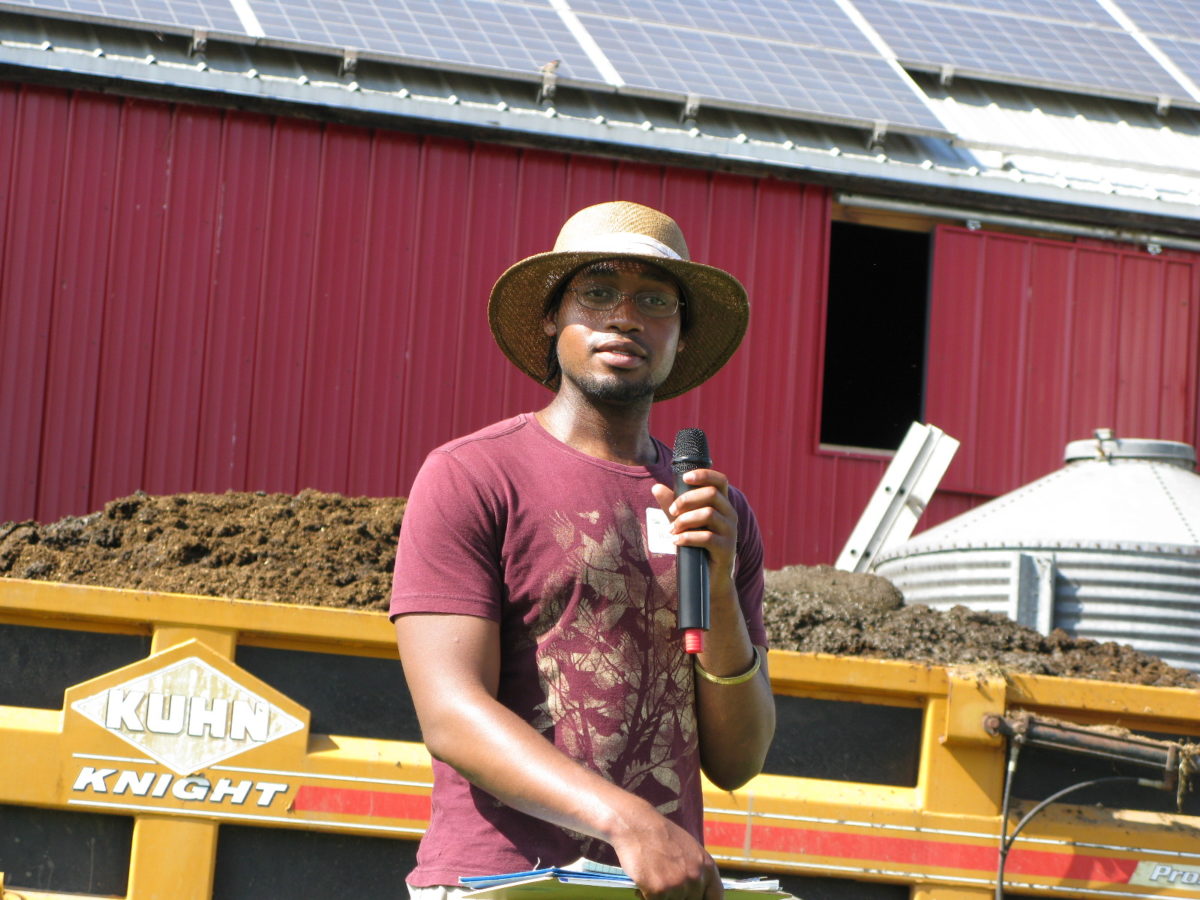Grant Program Overview
The purpose of the Research and Education grant program is to invest in education for farmers that leads to changes in farmer behavior, decision-making, and/or practices. These changes must increase the sustainability of farming in the Northeast United States. A Research and Education project can also include an applied research component, related to the educational activities.
- The primary audience are farmers, ranchers, and farm employees (henceforth “farmers”) that meet Northeast SARE’s Definition of a Farm.
- Farmers must be engaged in demonstrating the need for and the design of the project.
- Anyone who works in farming, including farmers, can lead a Research and Education project.
- The education program must be useful to farmers regardless of the results of any optional research component.
This grant program seeks innovative projects that improve existing practices or introduce existing practices to new farmer audiences.
Funding Available
There is no cap on total grant requests, however, requests typically fall between $30,000 and $250,000. A total of $1,560,000 has been allocated to fund projects this cycle.
Research and Education Grant Program Materials
-
Call for Proposals
The Call for Proposals is now open.
-
Budget Template
A completed budget using this template is part of the application process. Budget Template will auto-download when clicked.
-
Grant Commitment Form
A completed Grant Commitment Form is required as part of the application process. Form will auto-download when clicked
-
Reviewer Rubric
Rubric for Research and Education Program Proposals

Research and Education Grant Call Open
The Call for 2026 Research and Education proposals is now open. Proposals are due by 5 p.m. on February 2, 2026.
View CallNortheast SARE Research and Education Grants
- 466 projects funded since 1988
- $56.5M in funding since 1988
Upcoming Grant Deadlines
2026 Farming Community Grant Proposals - Due 5 p.m. EST, February 23, 2026
Sign up for the Innovations newsletter to stay up-to-date on grant calls and deadlines.
Which grant program is the best fit for my project?
Visit our
grant comparison chart
to take a quick side-by-side look at our grant programs.
Resources and References
Organizational Definitions
Legislative Priorities
All Northeast SARE grants must fit within one or more of SARE's Legislative Priorities that encourage research to increase knowledge concerning agricultural production. These priorities include:
● maintaining and enhancing the quality and productivity of the soil;
● conserving soil, water, energy, natural resources, and fish and wildlife habitat;
● maintaining and enhancing the quality of surface and ground water;
● protecting the health and safety of persons involved in the food and farm system;
● promoting the well-being of animals; and
● Increasing employment opportunities in agriculture.
Farmer Impact
Projects having a significant impact/impression on farmer's and farming communities is also critical. Impact can be economic, social, environmental etc. For example:
- How does the research support farmer/farming community livelihoods?
- How does the research build strong economies through local and/or regional trade?
- How does the research improve crop production?
For impact, replicability is important. Replicability is the ability of another farmer or farming community to obtain similar results when applying the same method (s). In other words, another farmer can utilize the results of the research to benefit their farming practices of behavior.
Outcome Statement
"Northeast agricultural communities honor the holistic connection among land, water, air, and all living beings. Agriculture in the Northeast is sustainable so that all farmers and farm employees can steward resources to ensure sustainability, resilience, economic viability, and a high quality of life."
Innovation
Innovation is defined as the development or adoption of new concepts or ideas and the successful exploration of new ideas. Ideation is the basis of creativity. The process of creative ideation develops new concepts; Innovation applies them. Creativity can only emerge when an innovator takes the idea and puts it into practice. Innovation can also be social and develop and implement novel and effective solutions to meet social and environmental challenges. The results should improve the welfare and well being of individual farmers and farming communities and reproducible. Within the scope of Northeast SARE, examples can include, but are not limited to:
● The introduction of a new behavior/practice, one with which farmers are not yet familiar
● The introduction of an improved or better agricultural behavior/practice, which may not be new, but is an improvement upon what occurred before.
● The opening of a new market that has not been entered previously, whether this market has existed previously.
● A new source of supply of materials or goods, again irrespective of whether this source already exists or whether it has first to be created.
● Improved organizational structure and/or capacity.
Northeast SARE encourages innovative solutions to challenges in farming and food systems in the Northeast USA, including but not limited to the areas of:
- Marketing and business
- Crop production
- Raising livestock
- Aquaculture
- Economic and social sustainability
- Ecological knowledge
- Projects related to climate and/or bioenergy work that provide direct or indirect benefits to farmers and ranchers
- And more.
Northeast SARE does not support:
- Educational programs for the general public
- Food donation efforts
- General public awareness campaigns about agriculture and nutrition
- Community or school gardening initiatives
Questions?
Please contact Grant Administrator Heather Omand with your questions.